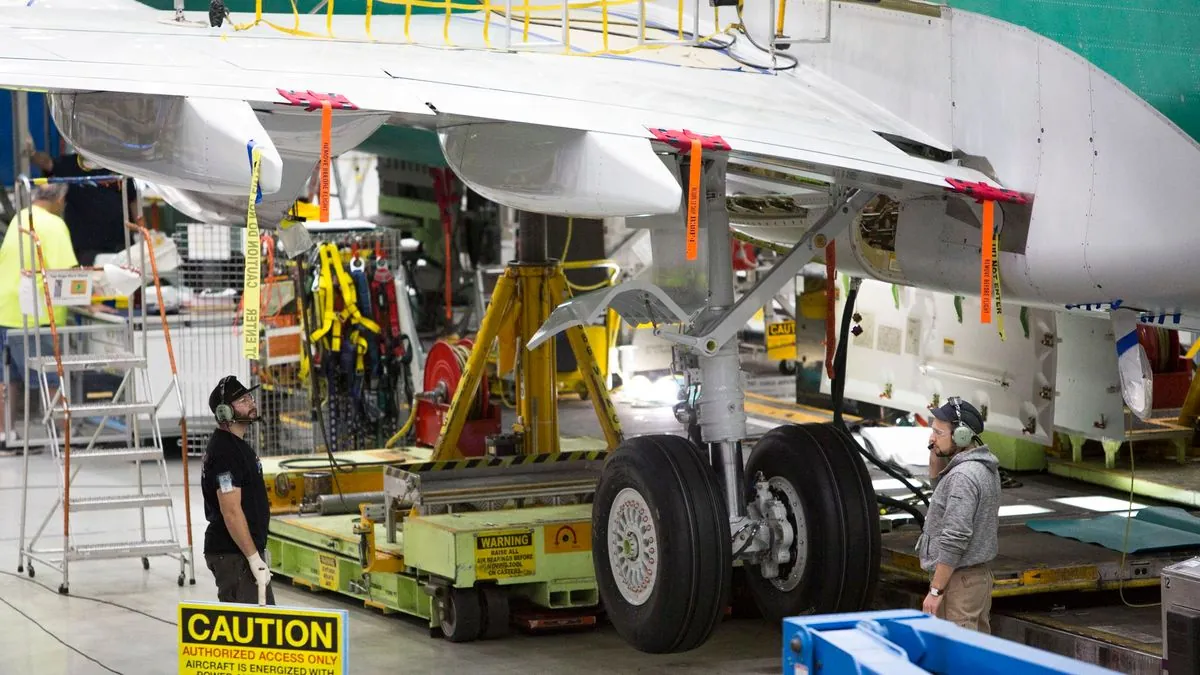Boeing faces a critical juncture as more than 33,000 union workers prepare to vote on a contract that could potentially lead to a significant work stoppage. The International Association of Machinists and Aerospace Workers members, primarily located in Washington state, are set to cast their ballots on a deal that offers substantial benefits but falls short of some union demands.
The proposed contract includes a 25% pay increase over four years, reduced healthcare costs, and increased retirement plan contributions. Notably, it also commits to manufacturing any new aircraft in the Seattle-Portland region during the contract period. However, the offer does not meet the union's initial request for a 40% pay raise and the reinstatement of pension plans.
This situation unfolds against a backdrop of increased union activism across various industries. Recent years have seen significant victories for labor organizations:
- United Auto Workers secured 25% pay increases after a six-week strike
- Teamsters won a strong contract with UPS
- American Airlines pilots obtained a 46% total compensation increase
- Southwest Airlines flight attendants received a 33% raise
Jon Holden, president of the union's District 751, anticipates members will reject the deal and strike, highlighting the workers' desire to recoup losses from years of stagnant wages and rising living costs.
A potential strike could severely impact Boeing's recovery efforts. The company, already grappling with financial and safety challenges, could face losses estimated at $1 billion per week during a work stoppage. This would further strain the aerospace giant's resources and potentially benefit its main competitor, Airbus.
"Simply put, this is the best contract we've ever presented. We put our best foot forward on the first offer to give you the reward and the respect you deserve."
Despite management's assurances, many workers remain skeptical. Critics point to the elimination of productivity, quality, and safety improvement bonuses, which they argue diminishes the impact of wage gains. Additionally, concerns persist about the limited duration of the guarantee to build new aircraft in the Pacific Northwest.
The aerospace industry's cyclical nature and Boeing's recent struggles, including the 737 MAX grounding and quality control issues, have heightened the stakes of this negotiation. The company's ability to navigate this labor dispute will be crucial for its future competitiveness and reputation in the global market.
As voting commences, the outcome remains uncertain. The decision of Boeing's workforce could have far-reaching implications not only for the company but for the entire aerospace industry and its supply chain. The resolution of this labor dispute will likely shape the future of American manufacturing and labor relations in the aerospace sector for years to come.
